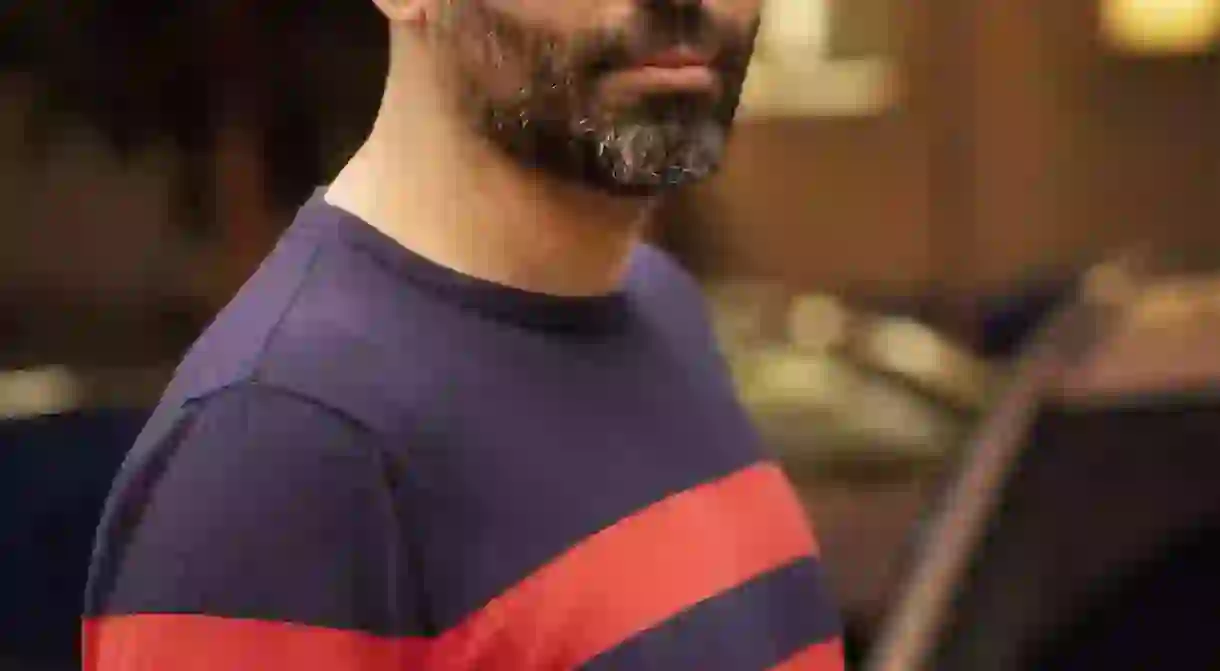An Interview With Roee Lotan: The Man Behind The Screen

In this modern technological age we spend most of our day behind some sort of a screen, either a desktop, laptop, iPhone, even an ATM machine. We come to accept that these screens are designed for user friendly experiences and the modern touch-screen technology just increases our convenience. For some of us, it might be surprising to discover that nowadays there is a group of designers with a specific skill set catered to ensure to our experience is as clean and efficient as possible. Roee Lotan, a talented and experienced ‘designer for screens’ refuses to confine his activity to a specific job title, as we find out in an exclusive interview with him.

What brought you to this career, what was your background’
My first encounter with the creative world was through photography as a child, I was drawn to this world by the influential work of Bernd and Hilla Becher, Robert Mapplethorpe and Andreas Gursky blew my mind when they drew new limits to my perception of content, aesthetics and form. My first professional shift took place in Central Saint Martins in London in 2004 where I was encouraged to explore my abilities in the design discipline, it felt comfortable to express myself with the tools i’ve learnt in photography and exciting to learn a new dialect of the same language. I then progressed into a more technically graphic expression in the Bezalel Academy of Art and Design. At Bezalel, I also learned to code, and that’s when I decided I wanted to work in a field where aesthetics, function and business goals are equally important. I opened my first design studio in 2010 and co-founded two start-ups since.
Why do you think it’s hard to find a job title for what you do?
The field of graphic design today encompasses a variety of skills. Designers today need to master the emotional, cultural, mental and technical aspects of ‘experience design.’ A designer must act as a know-all-narrator walking the user through a pre known story, very much like those books from the 80’s, “If you want to fight the Hydra go to page 78, to save the princess go to page 21”.

As a designer how differently do you see the world’
I think designers play an essential role in envisioning the face of the future as our job is to improve in each version, it’s called “Kaizen” in Japanese, meaning ‘change for better’. I think this is the essential core of what we do.Change for better can be everywhere, making day to day life slightly better through seamless experiences, from ordering your coffee in the morning to paying utility bills online. I see myself as a contributor in this sense as I find a great deal of importance in deciding who you want to work with; in my next business venture I aim to focus on creating meaningful products. I aim to partner with individuals and companies who recognize something wrong/ugly/unbearable in the world, and make it their mission to do something about it.

What is the future in screen designing?
I might be stating the obvious but the world as we know it is changing rapidly, screens are becoming more common, technology is now able to get more to a smaller real estate so they have to be more function centered, the content has to fit the medium and the different sizes of screens need to show different types of information to serve a specific function. I believe the designer’s job in the future will focus on multiple screens content adaptation and how to create an experience out it, a well designed system will know to foresee the information might required by the user and hand it to him wrapped in the most pleasant way. At the end of the day, the best design is the one you don’t see, users don’t need to recognize a good design, they just have to say “it just works”.

For more work and info on Roee Lotan, www.roandco.co
Interview by Deborah Moher, The Culture Trip’s Tel Aviv Director of Culture. Catch us on our TLV Twitter and Instagram.













